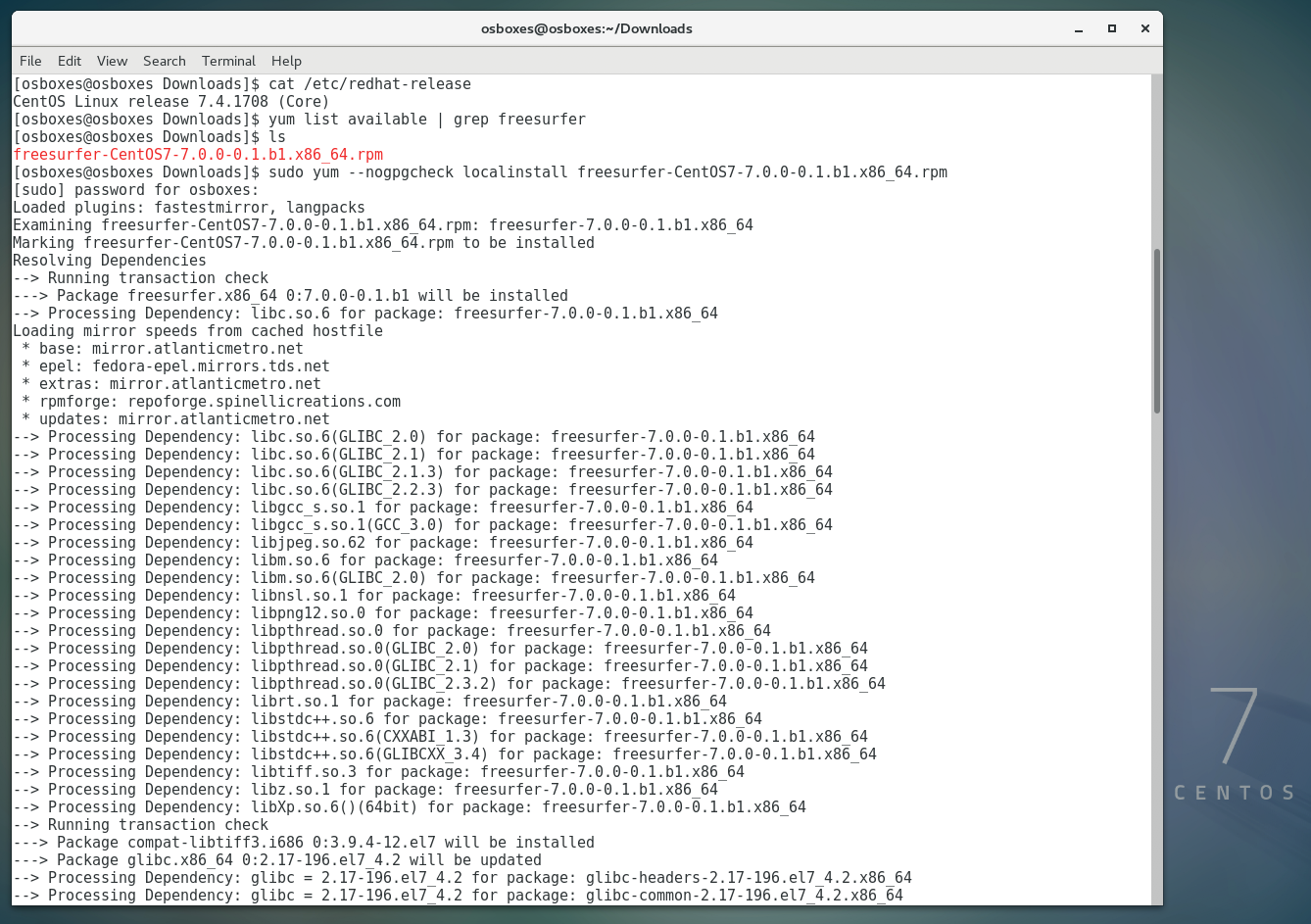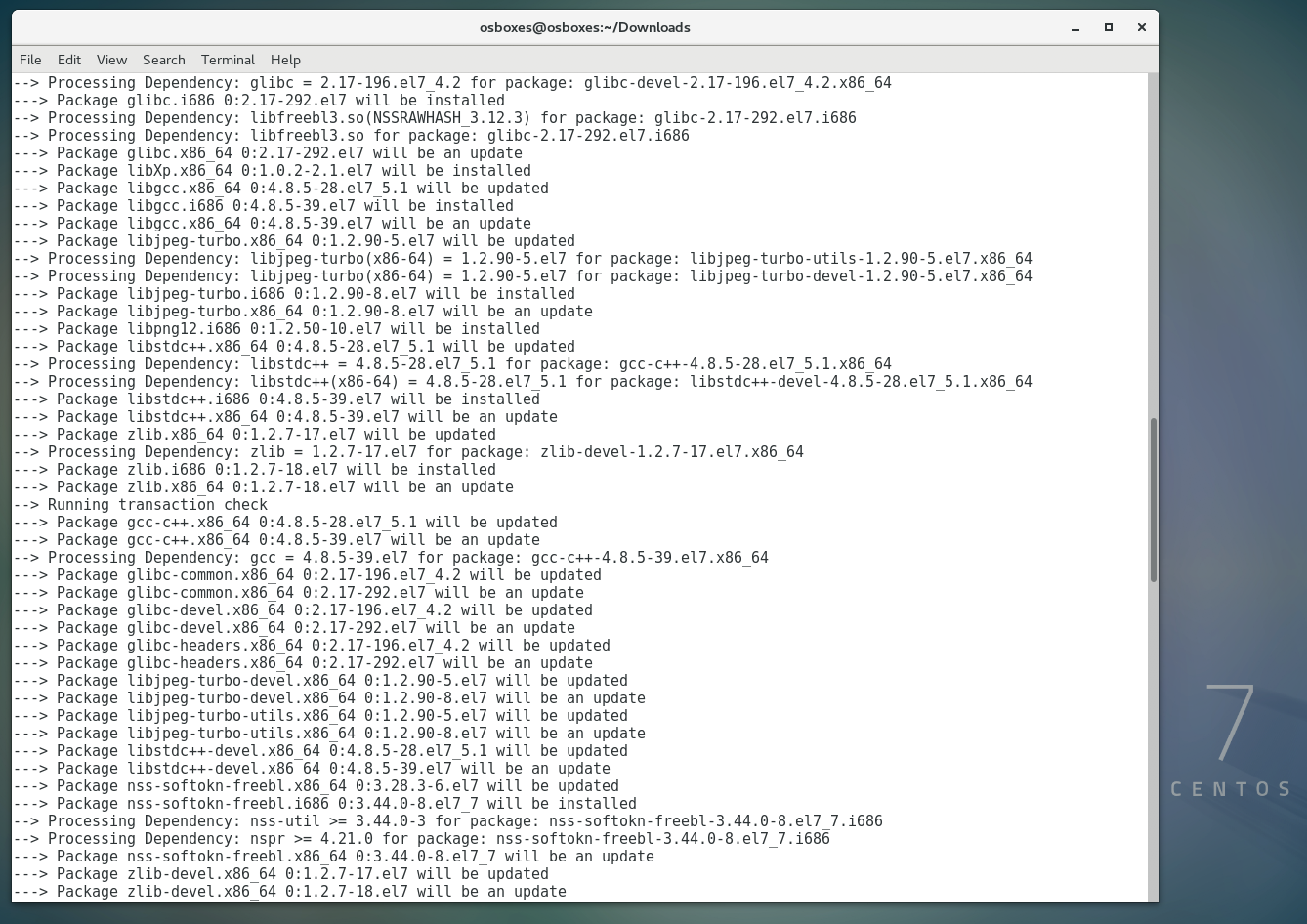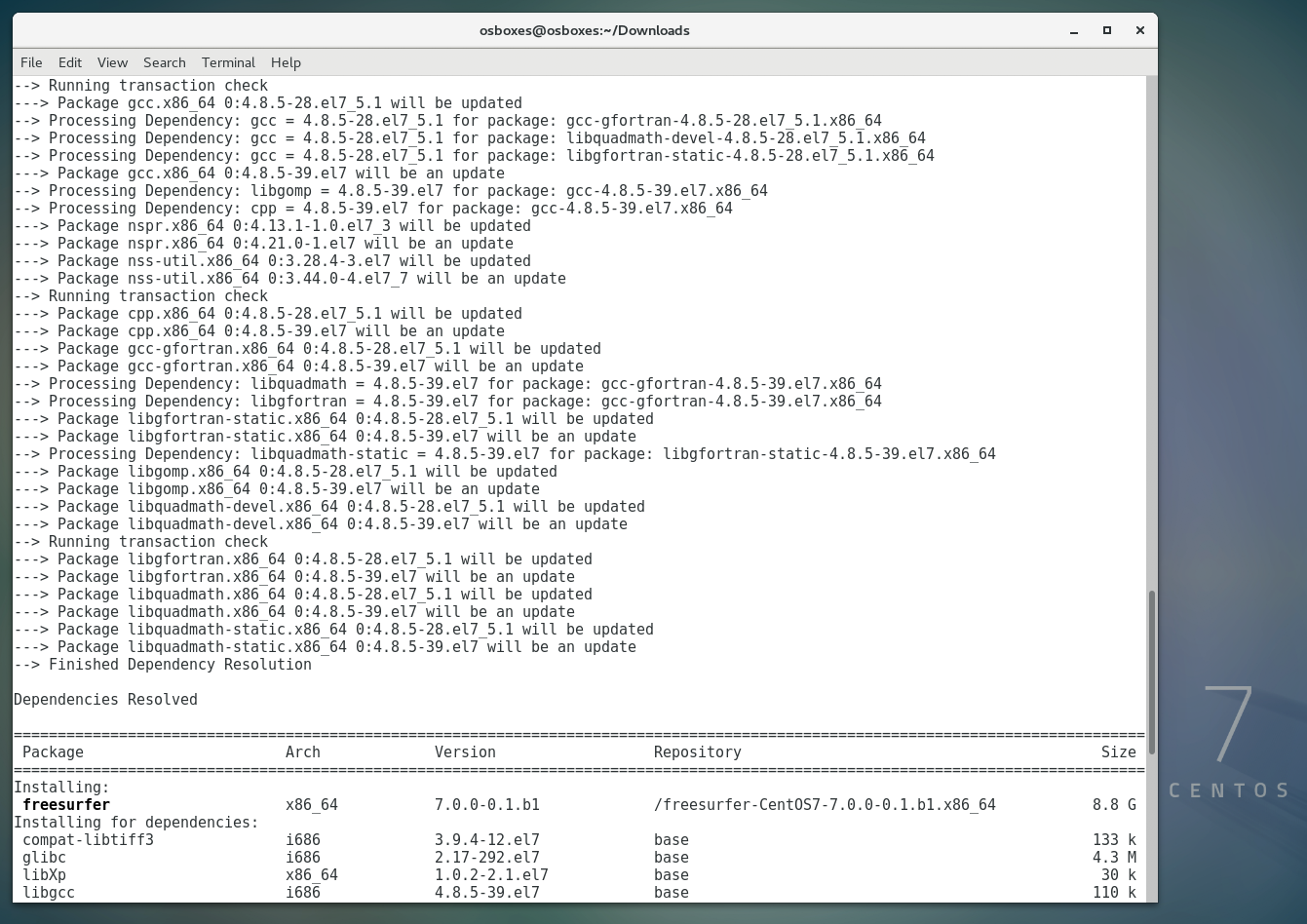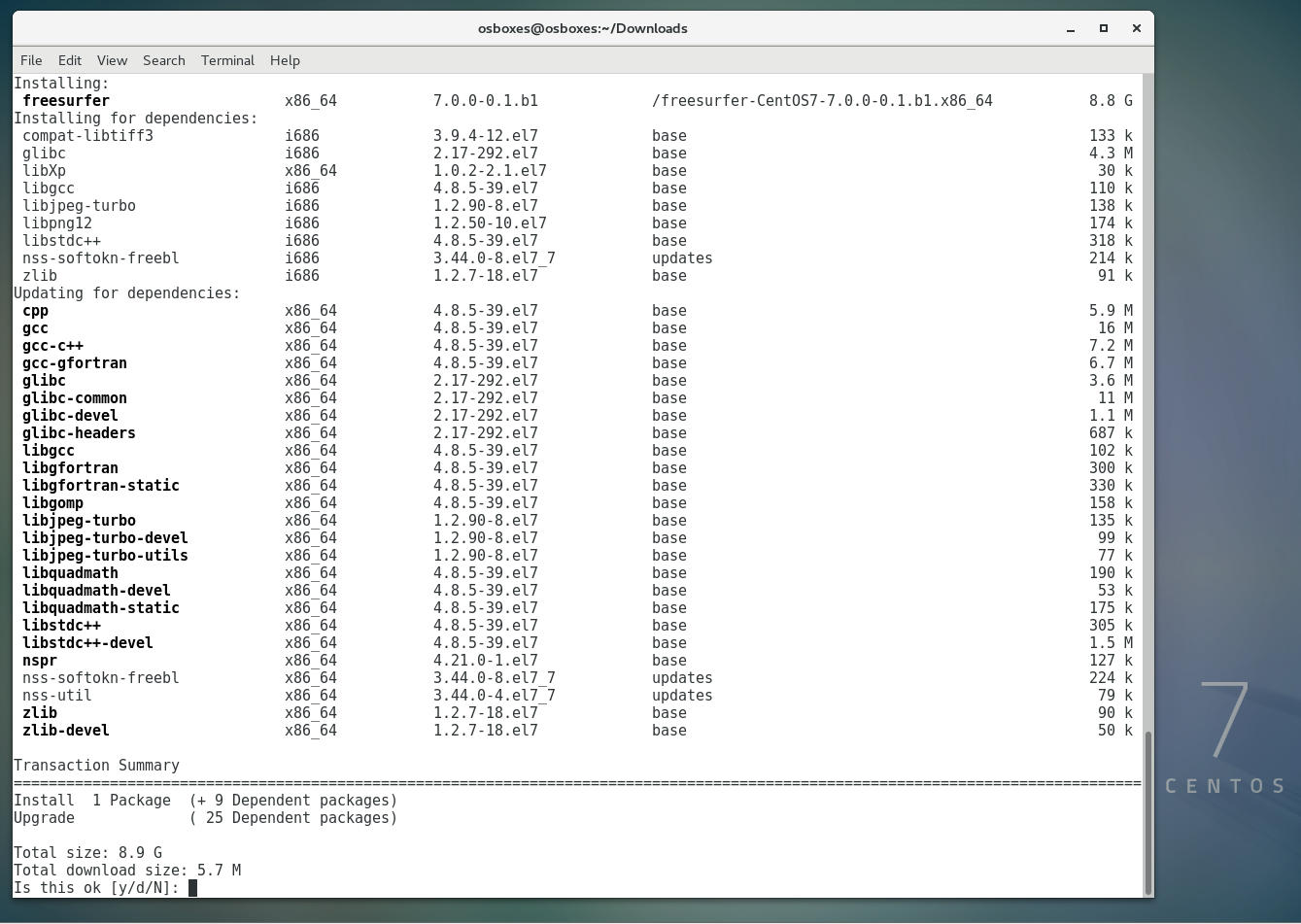|
⇤ ← Revision 1 as of 2020-02-19 17:07:01
Size: 660
Comment:
|
Size: 6374
Comment:
|
| Deletions are marked like this. | Additions are marked like this. |
| Line 1: | Line 1: |
| ## Please edit system and help pages ONLY in the master wiki! ## For more information, please see MoinMoin:MoinDev/Translation. ## IMPORTANT NOTE: ## When you use this page as a template for creating your project page: ## * please remove all lines starting with two hashes (##) ## * except the acl line, please keep that, but remove one hash, so it reads #acl ... ## * fix the acl line so it has the correct page instead of the sample Project/...Group ##acl Project/AdminGroup:admin,read,write,delete,revert Project/ReadWriteGroup:read,write Project/ReadGroup:read ##master-page:Unknown-Page ##master-date:Unknown-Date #format wiki #language en |
== Linux Install and Setup == On Linux systems, the tar archive file (.tar.gz) can be expanded under any convenient path/subdirectory on your machine you have permission to write to. For example, you can expand the tar archive under your $HOME directory. To install freesurfer under a recommended shared system location, e.g., {{{/usr/local}}}, you will typically need sudo or root privileges. Please note that if you have sudo/root privileges, then you should consider using the RPM file (.rpm) to install the freesurfer 7.0.0 beta 1 release under {{{/usr/local}}}. The linux package management tools provide the advantage of trying to install any software packages freesurfer depends upon that are not already installed on your system as part of installing freesurfer under {{{/usr/local/freesurfer/<package version>}}}. ''Example of placing the CentOS7 tar archive under the $HOME directory for user "tester" w/o any sudo/root privileges. Setup commands follow. Shell is bash or Bourne shell.'' {{{ $ cd $HOME $ pwd /home/tester $ tar -zxvpf freesurfer-linux-centos7_x86_64-7.0.0-beta.tar.gz x freesurfer/ x freesurfer/WMParcStatsLUT.txt x freesurfer/sessions/ x freesurfer/sessions/README ... .. <rest of output deleted> $ cd freesurfer $ pwd /home/tester/freesurfer $ export FREESURFER_HOME=/home/tester/freesurfer $ export SUBJECTS_DIR=$FREESURFER_HOME/subjects $ source $FREESURFER_HOME/SetUpFreeSurfer.sh -------- freesurfer-local-build-xxxxxx -------- Setting up environment for FreeSurfer/FS-FAST (and FSL) FREESURFER_HOME /home/tester/freesurfer FSFAST_HOME /home/tester/freesurfer/fsfast FSF_OUTPUT_FORMAT nii.gz SUBJECTS_DIR /home/tester/freesurfer/subjects MNI_DIR /home/tester/freesurfer/mni $ which freeview /home/tester/freesurfer/bin/freeview }}} ''Example of placing the CentOS7 tar archive under the system location /usr/local by user "tester" with sudo/root privileges. Setup commands follow. Shell is bash or Bourne shell.'' {{{ $ cd $HOME $ pwd /home/tester $ sudo tar -C /usr/local -zxvpf freesurfer-linux-centos7_x86_64-7.0.0-beta.tar.gz x freesurfer/ x freesurfer/WMParcStatsLUT.txt x freesurfer/sessions/ x freesurfer/sessions/README ... .. <rest of output deleted> $ export FREESURFER_HOME=/usr/local/freesurfer $ export SUBJECTS_DIR=$FREESURFER_HOME/subjects $ source $FREESURFER_HOME/SetUpFreeSurfer.sh -------- freesurfer-local-build-xxxxxx -------- Setting up environment for FreeSurfer/FS-FAST (and FSL) FREESURFER_HOME /usr/local/freesurfer FSFAST_HOME /usr/local/freesurfer/fsfast FSF_OUTPUT_FORMAT nii.gz SUBJECTS_DIR /usr/local/freesurfer/subjects MNI_DIR /usr/local/freesurfer/mni $ which freeview /usr/local/freesurfer/bin/freeview }}} ==== Using the Linux Package Manager ==== The "yum" package manager command is available on Redhat linux and its derivatives (like CentOS) to install, manage, and update the system software. System packages in the form of *.rpm files typically contain source, binaries and/or libraries to install on the system. The *.rpm package also usually contains a list of the system libraries and programs the *.rpm package contents will need in order to run after installation. Yum compares the system dependency information in the *.rpm package against what is currently installed on the system. Then it determines what if any other *.rpm packages need to be downloaded and installed first in order to satisfy the dependencies in the package(s) you have listed on the yum install command line. Yum will present a list of all packages it determines should be installed before installing the packages you ask for. You can accept or refuse to install the list of packages yum provides. A no answer to yum will leave the system unchanged. Exploring yue broad range of yum options is beyond the scope of this freesurfer install example. But it's not surprising that sudo or root privileges to install and change the system contents. (Though a non-privileged user should be able to run yum without sudo and see what is/is not installed on the system). If the yum command has not been run in a while, the first thing it will do is update the list of the package repositories on the web it uses to search for and download packages from. If we ask yum to tell us if freesurfer is already installed, you might see output like this from yum updating it's list of packages and the sites to fetch them from. {{{ $ yum list installed | grep -i freesurfer updates (1/2) epel/x86_64 updateinfo (2/2) updates/7/x86_64/primary_db ... .. <output deleted / your output will vary> . Determining fastest mirrors * base: mirror.siena.edu * epel: ewr.edge.kernel.org ... .. <output deleted / your output will vary> . $ }}} The result of the above command is that nothing was printed out listing an installed freesurfer package and a revision number. Or in the example below, the assumption is that no freesurfer package is currently installed on the system. We provide a freesurfer *.rpm package for download that is not part of an existing Redhat, CentOS or third-party repository. Yum by default assumes the package is available from an existing collection it has been configured to search for. So in response to the most basic command to install a "freesurfer" package, yum will search through every repository it knows about, find nothing, and then give up. {{{ $ sudo yum install freesurfer Loaded plugins: fastestmirror, langpacks base centos-sclo-rh centos-sclo-sclo epel/x86_64/metalink epel extras fpco rpmforge updates ... .. <output deleted / your output will vary> . No package freesurfer available. Error: Nothing to do $ }}} The remedy is to provide command line options to tell yum: (1) the package is not signed as it would be in an online repository; (2) the freesurfer rpm is local to the machine and not to be searched for or downloaded from a repository. {{{ $ sudo yum --nogpgcheck localinstall freesurfer-CentOS7-7.0.0-0.1.b1.x86_64.rpm }}} Screens shots from running the commands above on a CentOS 7.4 system are pictured below. {{attachment:Cos7_preinstall_1_4.png}} {{attachment:Cos7_preinstall_2_4.png}} {{attachment:Cos7_preinstall_3_4.png}} {{attachment:Cos7_preinstall_4_4.png}} |
Linux Install and Setup
On Linux systems, the tar archive file (.tar.gz) can be expanded under any convenient path/subdirectory on your machine you have permission to write to. For example, you can expand the tar archive under your $HOME directory. To install freesurfer under a recommended shared system location, e.g., /usr/local, you will typically need sudo or root privileges. Please note that if you have sudo/root privileges, then you should consider using the RPM file (.rpm) to install the freesurfer 7.0.0 beta 1 release under /usr/local. The linux package management tools provide the advantage of trying to install any software packages freesurfer depends upon that are not already installed on your system as part of installing freesurfer under /usr/local/freesurfer/<package version>.
Example of placing the CentOS7 tar archive under the $HOME directory for user "tester" w/o any sudo/root privileges. Setup commands follow. Shell is bash or Bourne shell.
$ cd $HOME $ pwd /home/tester $ tar -zxvpf freesurfer-linux-centos7_x86_64-7.0.0-beta.tar.gz x freesurfer/ x freesurfer/WMParcStatsLUT.txt x freesurfer/sessions/ x freesurfer/sessions/README ... .. <rest of output deleted> $ cd freesurfer $ pwd /home/tester/freesurfer $ export FREESURFER_HOME=/home/tester/freesurfer $ export SUBJECTS_DIR=$FREESURFER_HOME/subjects $ source $FREESURFER_HOME/SetUpFreeSurfer.sh -------- freesurfer-local-build-xxxxxx -------- Setting up environment for FreeSurfer/FS-FAST (and FSL) FREESURFER_HOME /home/tester/freesurfer FSFAST_HOME /home/tester/freesurfer/fsfast FSF_OUTPUT_FORMAT nii.gz SUBJECTS_DIR /home/tester/freesurfer/subjects MNI_DIR /home/tester/freesurfer/mni $ which freeview /home/tester/freesurfer/bin/freeview
Example of placing the CentOS7 tar archive under the system location /usr/local by user "tester" with sudo/root privileges. Setup commands follow. Shell is bash or Bourne shell.
$ cd $HOME $ pwd /home/tester $ sudo tar -C /usr/local -zxvpf freesurfer-linux-centos7_x86_64-7.0.0-beta.tar.gz x freesurfer/ x freesurfer/WMParcStatsLUT.txt x freesurfer/sessions/ x freesurfer/sessions/README ... .. <rest of output deleted> $ export FREESURFER_HOME=/usr/local/freesurfer $ export SUBJECTS_DIR=$FREESURFER_HOME/subjects $ source $FREESURFER_HOME/SetUpFreeSurfer.sh -------- freesurfer-local-build-xxxxxx -------- Setting up environment for FreeSurfer/FS-FAST (and FSL) FREESURFER_HOME /usr/local/freesurfer FSFAST_HOME /usr/local/freesurfer/fsfast FSF_OUTPUT_FORMAT nii.gz SUBJECTS_DIR /usr/local/freesurfer/subjects MNI_DIR /usr/local/freesurfer/mni $ which freeview /usr/local/freesurfer/bin/freeview
Using the Linux Package Manager
The "yum" package manager command is available on Redhat linux and its derivatives (like CentOS) to install, manage, and update the system software. System packages in the form of *.rpm files typically contain source, binaries and/or libraries to install on the system. The *.rpm package also usually contains a list of the system libraries and programs the *.rpm package contents will need in order to run after installation. Yum compares the system dependency information in the *.rpm package against what is currently installed on the system. Then it determines what if any other *.rpm packages need to be downloaded and installed first in order to satisfy the dependencies in the package(s) you have listed on the yum install command line. Yum will present a list of all packages it determines should be installed before installing the packages you ask for. You can accept or refuse to install the list of packages yum provides. A no answer to yum will leave the system unchanged.
Exploring yue broad range of yum options is beyond the scope of this freesurfer install example. But it's not surprising that sudo or root privileges to install and change the system contents. (Though a non-privileged user should be able to run yum without sudo and see what is/is not installed on the system).
If the yum command has not been run in a while, the first thing it will do is update the list of the package repositories on the web it uses to search for and download packages from. If we ask yum to tell us if freesurfer is already installed, you might see output like this from yum updating it's list of packages and the sites to fetch them from.
$ yum list installed | grep -i freesurfer updates (1/2) epel/x86_64 updateinfo (2/2) updates/7/x86_64/primary_db ... .. <output deleted / your output will vary> . Determining fastest mirrors * base: mirror.siena.edu * epel: ewr.edge.kernel.org ... .. <output deleted / your output will vary> . $
The result of the above command is that nothing was printed out listing an installed freesurfer package and a revision number. Or in the example below, the assumption is that no freesurfer package is currently installed on the system.
We provide a freesurfer *.rpm package for download that is not part of an existing Redhat, CentOS or third-party repository. Yum by default assumes the package is available from an existing collection it has been configured to search for. So in response to the most basic command to install a "freesurfer" package, yum will search through every repository it knows about, find nothing, and then give up.
$ sudo yum install freesurfer Loaded plugins: fastestmirror, langpacks base centos-sclo-rh centos-sclo-sclo epel/x86_64/metalink epel extras fpco rpmforge updates ... .. <output deleted / your output will vary> . No package freesurfer available. Error: Nothing to do $
The remedy is to provide command line options to tell yum: (1) the package is not signed as it would be in an online repository; (2) the freesurfer rpm is local to the machine and not to be searched for or downloaded from a repository.
$ sudo yum --nogpgcheck localinstall freesurfer-CentOS7-7.0.0-0.1.b1.x86_64.rpm
Screens shots from running the commands above on a CentOS 7.4 system are pictured below.




